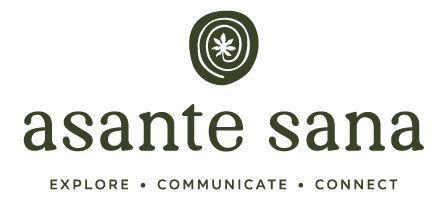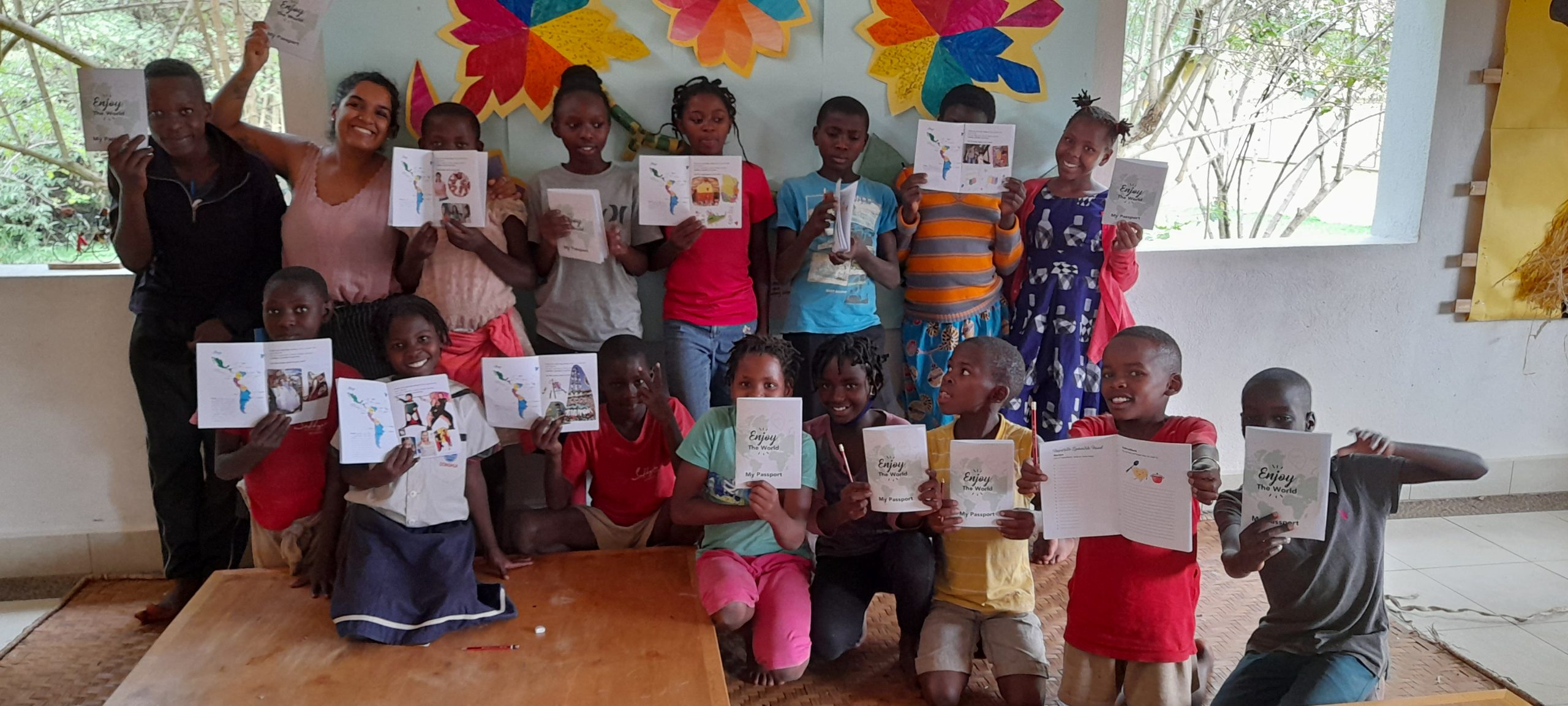I created my first journal!
For as long as I can remember I have kept a journal. That is: writing, drawing, and documenting life have always been important in my history. I would see my father always with a notebook in hand, documenting his sales, prices, and writing simple notes.
Mum always had papers all over the place, writing down the shopping list, a recommendation from the radio, or something important to do. My grandmother even wrote on the walls. In her room, there was a notebook with the whole family’s phone numbers, some memories, and the numbers she used for gambling.
At school, what mattered to me was to write down what happened every day, to decorate each notebook, and to frame the beginning of each term with colors and shapes that gave grace to those subjects that I often didn’t understand. At university the same, but now more focused on content, reflection, and knowledge.
With curiosity for art as my life companion, the abstract forms that writing allowed me then moved to photography, video, and installation. The mobile phone became the container for my archives and the easiest way to document the here and now, to preserve the past and return to it whenever I wanted. But it wasn’t enough and so I returned to the notebook, to the diary, to the reflective and analog look at the days.
Every start of the month, every important event, every tide, every fall… all in a bundle of papers that later became unsustainable to keep up with my wanderings.
Journaling courses, special notebooks for journaling, and journals in all sizes and colors. Journals that I still keep, journals that I burned, journals that I gave away, journals that I no longer wanted.
Journaling is part of my life, essence, memory, and cultivation of creativity, so without them, I can’t think about my life or anything I do.
So, I created a journal to do something I love to do: teach Spanish. Teaching a language, but above all, sharing culture and celebrating diversity.
In 2021 I got to know a region in western Uganda called Fort Portal, a land of crater lakes and the most beautiful landscapes I know in this country.
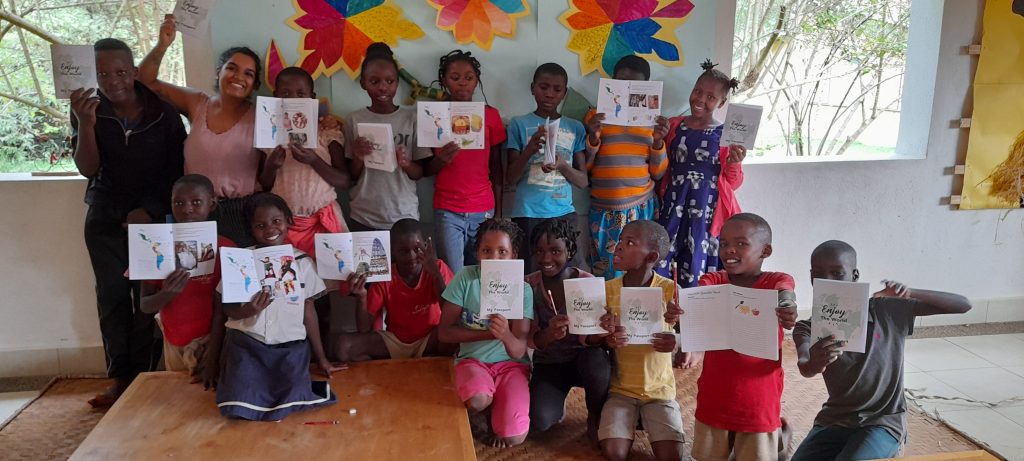
I arrived in Ndali (a village about 27km from the city) where I found Sadghuru School, an educational project that I wanted to be part of from day one. There, teachers and students have corporal and spiritual experiences as the basis of the educational curriculum.
Together with its director and my possibilities to travel from Kampala from time to time to join the project, my first journal was born, which is actually the backbone of an educational process that links Spanish, and Latinos cultures, creativity, meditation, yoga, and joy.
Spanish-speaking countries Passport is a 36-page journal that simulates a real passport (with the main page for personal information, including a photo) and pages dedicated to different topics that I believe allow us to approach the Spanish language without a rigid structure, but rather an opening to the curiosity for other languages, cultures, traditions, and ways of understanding the world.
I always remember the motto of one of the schools where I worked «we don’t teach just a language; we teach how to learn languages» and so that’s what I based myself on.
During the first semester of 2022, I traveled to the school at least 10 times to offer, as an extracurricular activity, on Fridays, a 60- or 90-minute session of Spanish.
The students got a taste of Latino culture by identifying the countries that speak Spanish, some of their costumes, and music. They learned keywords for their basic level and completed the «vocabulary of beautiful Spanish expressions» with some words they were interested in knowing.
We had a video call with one of my friends in Latam, who exchanged food and animal vocabulary through Zoom. We bridged the distance and recognized that there is as much matooke* in Colombia as in Uganda; yes, that humanity is our denominating factor and that curiosity should not be exhausted.
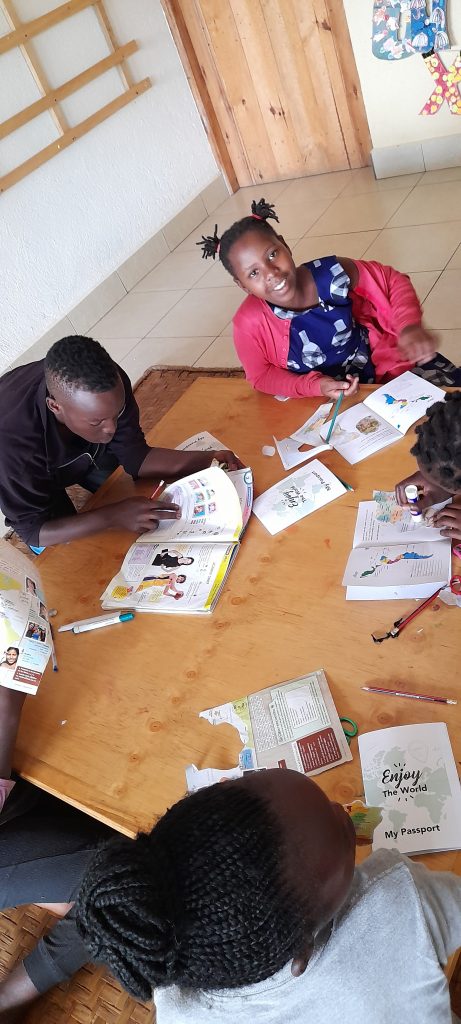
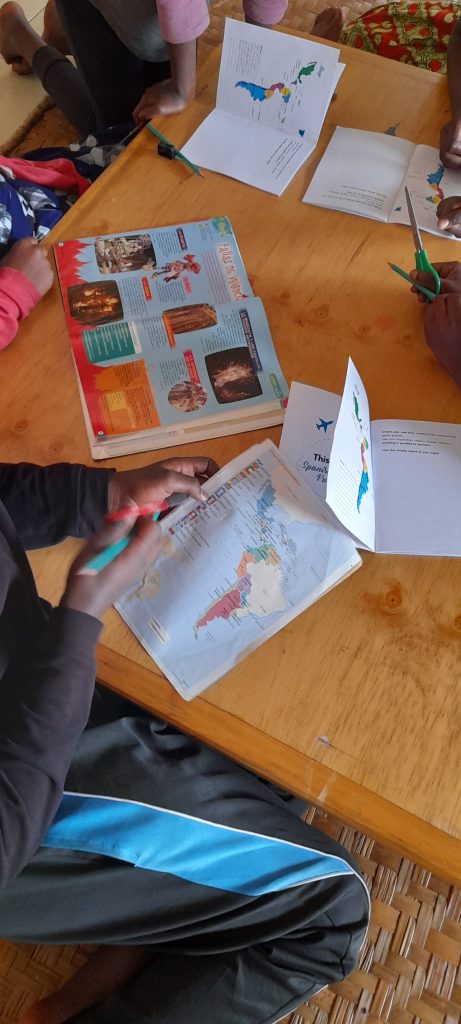
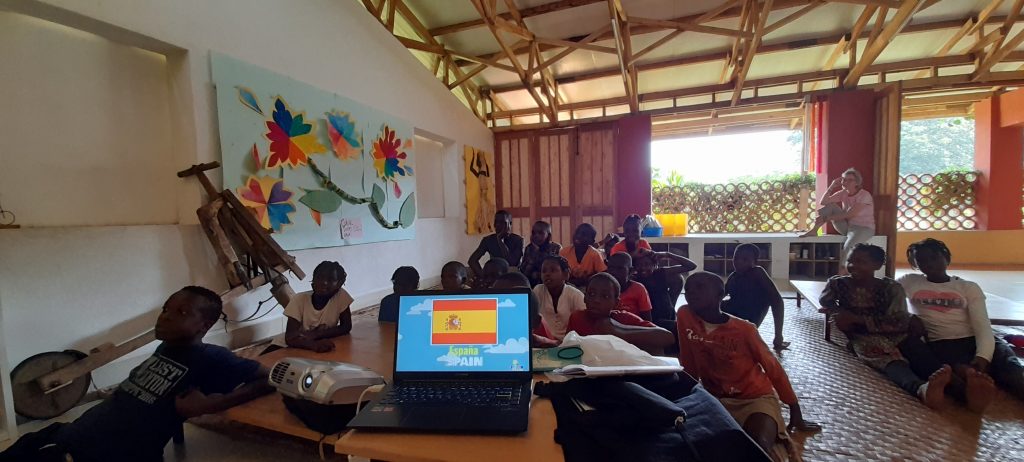
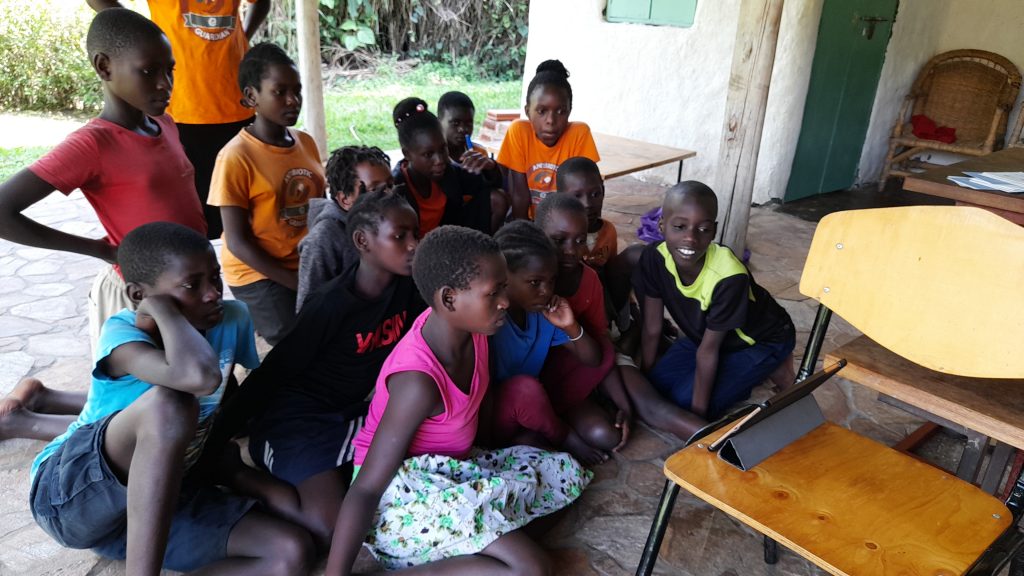
I traveled, and so did the students. Our journal is a passport and with it the reflection and resignification of the castrating elements that bureaucracy creates to deprive us of the opportunity to cross borders.
Although I already had some indications, this project allowed me to recognize teaching in another dimension. More adjusted to the needs of the group receiving the knowledge, kinder to the territory, and less rigid and established.
It was an honor for me to create this experience that is now within reach of more children who want to get closer to Spanish and venture to travel a little through the cultures of the countries of this language.
Ready to travel?
*Refer to the plantain or plantain banana in Uganda
